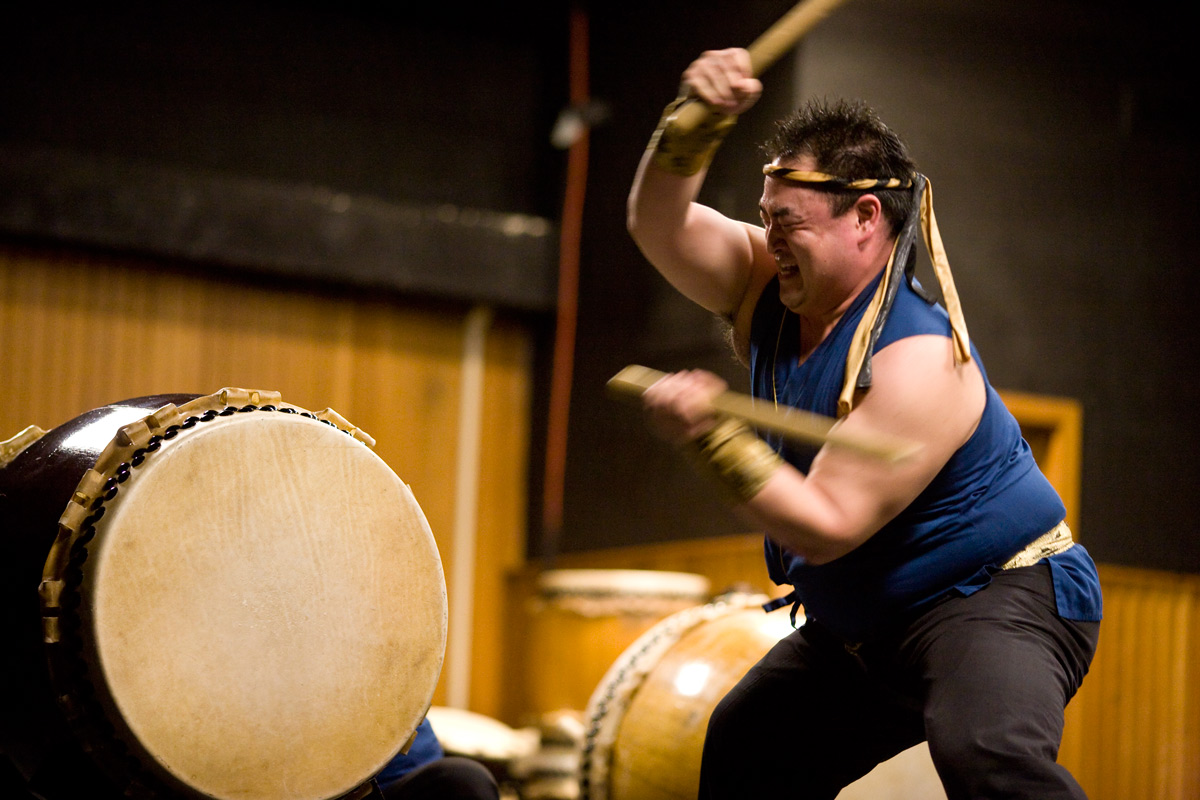Freshmen Lamar Whaley did not know what to expect when he planned to attend SCORR Conference 2009. SCORR, he suspected, might just be another service, similar to the reconciliation chapels he went to in the past.
The African music, vibrant Hebrew dancing and traditional singing Whaley witnessed during the conference’s kick-off worship mosaic, however, was something completely different. Attendees made Calvary Chapel resonate with joyous singing, shouting and clapping, a worship experience that was on a much grander and exuberant scale for Whaley.
“Seeing those different performances really gave me a glimpse of how amazing and diversified worship is going to be in heaven,” he said.
The SCORR Conference – Student Congress on Racial Reconciliation – is an annual event that encourages students on Christian college campuses from different cultures to embrace their heritage and celebrate diversity. During the weekend conference, which first began in 1996, participants interact with other people from around the country by engaging in dialogue, conversation and prayer.
The purpose of the annual SCORR Conference is to empower students to glorify God by better equipping them to face challenges on their campuses and society at large through multi-ethnic awareness and the celebration of cultural diversity, said Glen Kinoshita, Biola’s director of multi-ethnic programs.
Senior Shirly Tagayuna, who attends SCORR every year, agreed, viewing the event as essential in order to relate successfully to others in an increasingly diverse world.
“It [SCORR] not only promotes cultural issues, but it also quells ignorance, and that’s absolutely necessary,” Tagayuna said.
The SCORR Conference “quelled ignorance” in a number of ways, chiefly through the information and discussions presented by featured speakers in the workshop sessions. In some workshops, issues pertaining to those of distinct ethnic backgrounds – like the “Asian Pacific Islanders and the Bamboo Ceiling” worship featured in this year’s conference – are discussed in detail. Other workshops deal with broader issues that can apply to individuals of different ethnicities, such as the topic of race and politics in the 2008 Presidential Election.
Sophomore Ryan Adams, who attended the conference for the first time, immediately understood the significance of the event after attending the film discussion and some of the workshops.
“SCORR is important because it helps us to relate to each other as members of the body of Christ,” Adams said. “The body of Christ is diverse; that’s how the Gospel calls it to be.”
“Repairers of the Breach,” was this year’s SCORR Conference theme. The name is a reference to Isaiah 58, which teaches that those who care for the needy will receive God’s blessings. The passage especially pertains to the issue of racial reconciliation, said Kinoshita.
“We believe reconciliation and justice has its thesis first and foremost in the biblical text,” Kinoshita said. “We are to be people who bring healing and restoration in this world for the kingdom of God.”
Attendees at this year’s SCORR Conference could choose from a variety of workshops, film discussions and worship sessions throughout the weekend. Topics covered in the workshop included dealing with racial incidents on Christian campuses, being white in a multi-ethnic world and an exploration of African dance. Friday evening’s worship mosaic featured different forms of praise music and dance.
Keynote speaker Soong-Chan Rah concluded the worship mosaic with a message about the role of the church in a secular world. The traditional Taiko fest – a performance featuring Japanese drums – brought SCORR Conference 2009 to a close Saturday evening.
The conference expectedly drew many Biolans, but students from Azusa, Fresno Pacific University, Westmont and other colleges were present as well.
“This year, we have 33 students and five staff members,” said Elena Yee, the director of intercultural programs at Westmont College. “It’s the highest number we’ve ever had attending the conference.”
On average, about 70 to 90 off-campus individuals register for the SCORR Conference, but this year resulted in over 120 non-Biola attendees, Kinoshita said.







